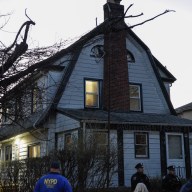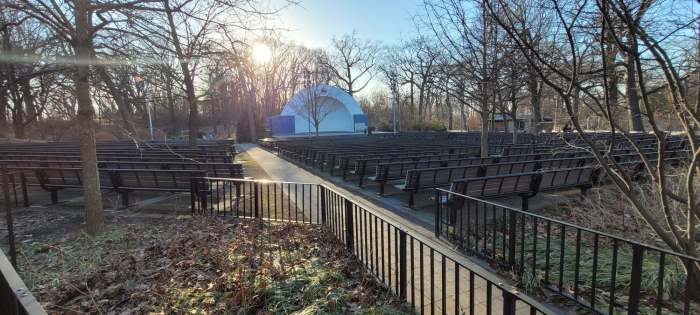By Barbara Morris
Years ago, when our family took a long drive, we all watched for roadside Burma Shave signs. They were appropriately spaced along highways, not only to advertise their product, but to keep travelers alert and to share a bit of practical humor.
One that impressed me most was brief and to the point: “Fire. Fire. Keep cool. Be brave. Grab your pants and Burma Shave.” I thought of those words when I was listening to one of the New York Police Department’s lectures on emergency preparedness procedures. History indicates there have always been emergencies, and that will probably always be true.
As a practical individual, I like to face such facts and get ready for whatever is to come so that as much of a last-minute rush as possible can be avoided. Unlike those who think they are never going to die, I made my last will and testament when I was 18. It was not really the last because it has been revised many times, always with the hope that someday I may be able to leave something worthwhile to some deserving person or cause.
That detail out of the way, there are other day-to-day practicalities that should be musts in every home. The American Red Cross, Federal Emergency Management Agency and the NYPD have made many suggestions and have been helpful in a variety of emergencies from terrorist attacks, tornadoes, hurricanes, fires and electrical failures to one of those surprise winter storms in the spring.
Each adult in the household may want to keep assembled an emergency kit. A backpack or duffel bag is one place to arrange your kit.
Include a sealed, unbreakable container of water; non-perishable food; a non-electric can opener; a change of clothing and sturdy shoes; warm bedding; a first-aid kit; prescription medications and an extra pair of glasses; a battery-powered radio, flashlight and portable phone; batteries; extra cash and house and car keys; names, addresses and phone numbers of local and out-of-town family, friends and physicians; a list of important family information (the style and serial numbers of medical devices such as pacemakers, etc.); insurance information; and a filter mask.
Similar kits should be prepared for each member of the household, with special items included for infants, disabled or elderly. Family records should be kept in a water- and fire-proof container, and each individual should wear a current picture I.D. Learn about emergency plans for your workplace and your children’s school or day care.
Share this information with other family members, and also decide on two meeting places in case you are separated — one near your residence and one outside your neighborhood — in case you can’t return home after a disaster. Each family member should know the phone number of one local and one out-of-state contact to call if you fail to meet after being separated.
Post emergency numbers near telephones and keep a working flashlight here as well. Teach children when and how to call 911 and long distance. Instruct all household members to turn on the radio for emergency information. Learn how to turn off the water, gas and electricity at the main switches. Tag them.
Also, learn what to do about power outages and personal injuries. The location of downed electrical wires should be called in immediately to Con Edison, and that area, especially if wet, should not be approached. If you smell gas inside your home, do not use your phone, strike a match or do anything that might make a spark. Instead, warn household members, leave the house and call the gas company or 911 from the street or use neighbor’s phone.
In case of a fire, remember that if you touch a door that feels hot, never open it. There is probably fire on the other side. Again, warn household members and get out. It would also be a good idea to draw a plan of each floor in your house, indicating escape routes, utility shut-offs, fire extinguishers, smoke detectors, disaster supplies kits, collapsible ladders, reunion locations outside, etc.
Have a plan and practice. The more you practice, the less frightening a real emergency will seem. Remember fire drills at school? Please also consider taking a basic first-aid and CPR course. You never know when that knowledge might be a life-saver.
































